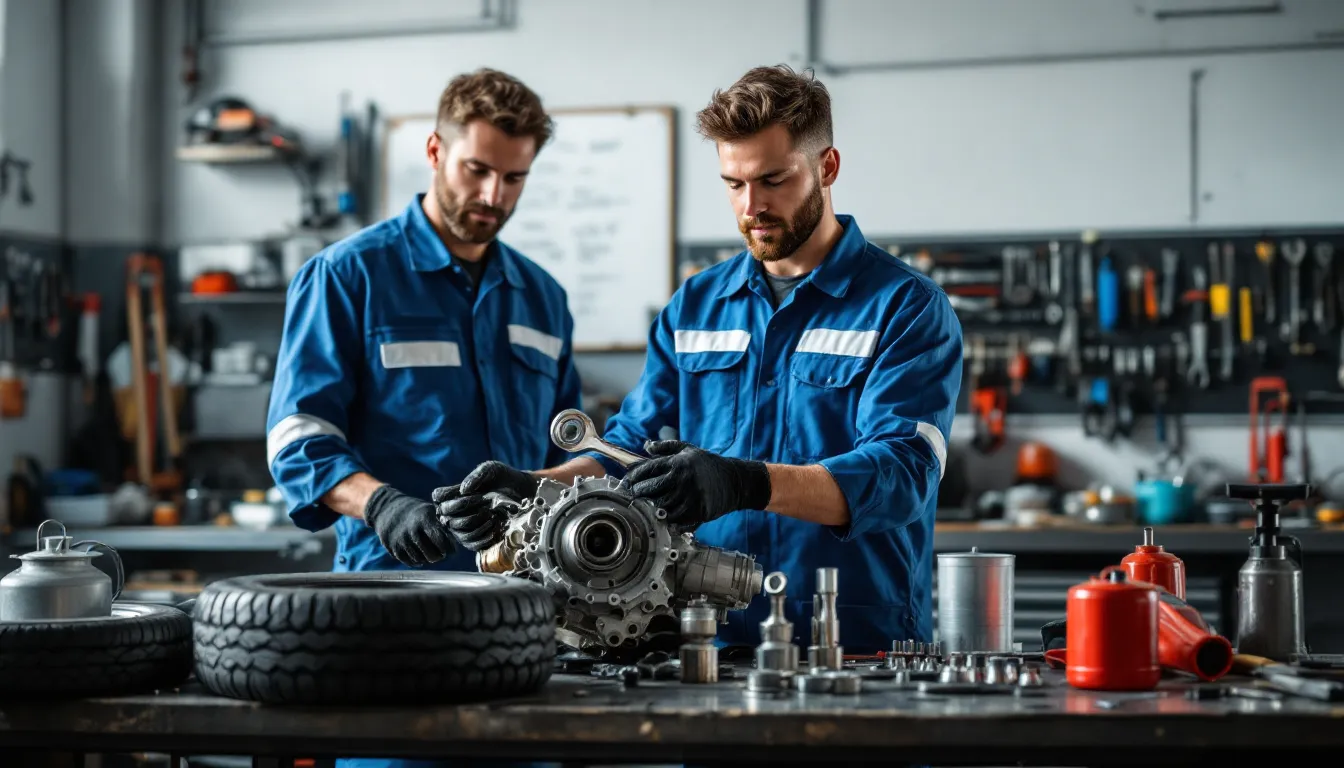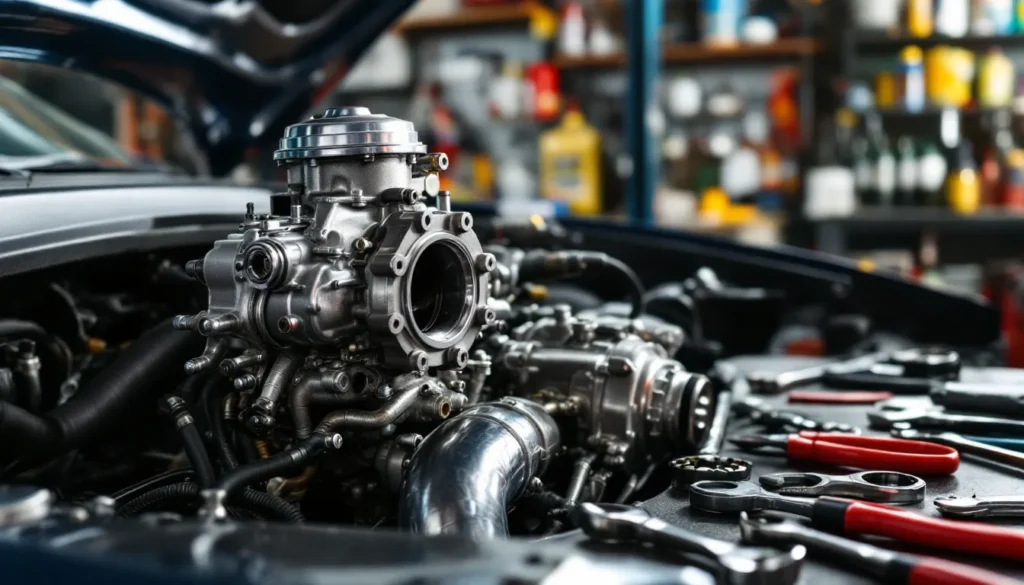Key Takeaways
- Signs You Need Replacement: Look for coolant leaks, overheating engines, unusual noises, and poor engine performance as indicators that your water pump may need replacement.
- Types of Water Pumps: Familiarize yourself with the three main types: centrifugal, electric, and mechanical, each with distinct advantages and applications in various vehicles.
- Cost Factors: Understand that replacement costs vary based on labor rates, choice between OEM and aftermarket parts, and the complexity of your vehicle.
- Average Replacement Costs: Expect water pump replacement costs to range from $250 to $1,200, influenced by vehicle type and necessary repairs.
- Risks of Delay: Ignoring water pump issues can lead to serious engine damage, increased repair costs, safety hazards, and a decrease in vehicle value.
- Budgeting for Maintenance: Being informed about the costs and signs can help you budget and make timely maintenance decisions to keep your vehicle running smoothly.
If your car’s overheating or you notice coolant leaks, it might be time to replace the water pump. This crucial component keeps your engine cool by circulating coolant, and when it fails, it can lead to serious engine damage. Understanding the costs involved in replacing a water pump can save you from unexpected expenses down the road.
The price to replace a water pump varies based on several factors, including the make and model of your vehicle, labor costs in your area, and whether you choose OEM or aftermarket parts. Knowing what to expect can help you budget effectively and make informed decisions about your car maintenance. Let’s dive into the details so you can be prepared and keep your engine running smoothly.
Understanding Water Pumps
Water pumps play a crucial role in your vehicle’s cooling system by circulating coolant throughout the engine. Knowing the types of water pumps and common issues can help you maintain your vehicle effectively.
Types of Water Pumps
- Centrifugal Pumps
Centrifugal pumps utilize rotational energy to transfer coolant. They are the most common type found in modern vehicles due to their efficiency and effectiveness.
- Electric Water Pumps
Electric water pumps use an electric motor instead of a belt-driven system. They offer precise coolant flow control and often provide added efficiency in hybrid and electric vehicles.
- Mechanical Water Pumps
Mechanical pumps operate via a belt connected to the engine. These systems are reliable and easy to replace, but they can wear out over time.
Common Issues with Water Pumps
- Leaking Coolant
Leaks can occur at the pump seals or gaskets. If you notice coolant pooling under your vehicle, inspect the water pump for potential leaks.
- Overheating Engine
An overheating engine can indicate a failing water pump. If the pump isn’t circulating coolant effectively, your engine temperature may rise.
- Unusual Noises
Unusual noises, such as grinding or whining sounds, may signal a failing bearing within the water pump. Address these symptoms quickly to avoid further damage.
- Poor Engine Performance
A malfunctioning water pump can lead to erratic engine performance. Poor coolant flow might affect engine efficiency, leading to reduced power.
- Corrosion or Wear
Corrosion or excessive wear on the pump can lead to failure. Regular inspections can help catch these issues before they require replacement.
Factors Influencing Water Pump Replacement Cost

Several factors impact the overall cost of replacing a water pump. Understanding these influences helps you budget effectively for this essential maintenance task.
Labor Costs
Labor costs vary based on geographic location and the complexity of the replacement job. Expect hourly rates to range from $75 to $150, depending on the technician’s experience and shop reputation. Some vehicles require additional disassembly, increasing labor time and costs. Researching local rates provides clarity on what to anticipate for labor expenses.
Parts and Materials
Parts and materials significantly affect replacement costs. Aftermarket water pumps tend to be less expensive, ranging from $50 to $100, while original equipment manufacturer (OEM) pumps can cost between $100 and $250. Additional materials like gaskets, seals, and coolant can add $20 to $50 to your total. Selecting high-quality parts ensures long-term performance, so prioritize quality when deciding between options.
Average Cost to Replace a Water Pump
Replacing a water pump typically involves various costs that depend on multiple factors. Understanding these estimates helps you budget effectively for this essential vehicle maintenance.
Low-End Estimates
Low-end estimates for replacing a water pump range from $250 to $500. This cost generally includes basic labor and aftermarket parts. If your vehicle has a straightforward design and the job is uncomplicated, expenses tend to stay on the lower end of the spectrum. For example, compact cars or older models often incur minimal costs due to simpler access to the water pump.
High-End Estimates
High-end estimates for a water pump replacement can reach between $800 and $1,200. Higher costs typically arise from luxury vehicles or those with complex engine setups. These models often require specialized parts and more extensive labor. When choosing OEM parts over aftermarket ones, expect an increase in total expenses. Additionally, if significant engine disassembly is necessary, labor costs could further boost the price.
When to Consider Replacement
Recognizing when to replace your water pump can prevent costly damage to your vehicle. Pay attention to specific signs and understand the potential risks of delaying replacement.
Signs Your Water Pump Needs Replacement
- Leaking Coolant: Observe puddles of coolant underneath your vehicle. Leaks indicate a compromised water pump that requires immediate attention.
- Overheating Engine: Monitor your engine temperature gauge. An overheating engine often signals ineffective coolant circulation due to a failing pump.
- Unusual Noises: Listen for whining or grinding noises coming from the engine. These sounds can signify a worn water pump or failing bearings.
- Poor Engine Performance: Evaluate your vehicle’s overall performance. A struggling engine may indicate inadequate cooling due to a malfunctioning pump.
- Corrosion or Wear: Inspect the water pump for rust or corrosion. Visible signs of wear affect the pump’s efficiency and lifespan.
Potential Risks of Delaying Replacement
- Severe Engine Damage: Ignoring water pump issues can lead to overheating, damaging vital engine components and increasing repair costs significantly.
- Increased Repair Costs: Postponing replacement may lead to additional repairs. A failing pump can cause coolant leaks, affecting other engine systems.
- Safety Concerns: An overheating engine can result in dangerous situations while driving, increasing the risk of accidents or breakdowns.
- Loss of Vehicle Value: A poorly maintained water pump can negatively impact your vehicle’s resale value, as potential buyers often prioritize reliable cooling systems.
Conclusion
Replacing your water pump is a crucial aspect of maintaining your vehicle’s health. By staying informed about the costs and factors involved you can make smarter decisions that protect your engine and budget. Regular inspections and prompt attention to warning signs can prevent costly repairs down the line.
Whether you choose OEM or aftermarket parts understanding the average costs will help you plan effectively. Prioritizing the water pump’s condition not only enhances your car’s performance but also ensures your safety on the road. Taking action now can save you from more significant issues in the future.

Hi, I’m Md Rofiqul, a gardening enthusiast who loves spending time in the garden and backyard. I enjoy caring for plants, growing flowers and vegetables, and creating a green space that feels peaceful and refreshing. Gardening is more than just a hobby, it’s a passion that connects me to nature and brings joy to my daily life. Living with plants inspires me to embrace simplicity, patience, and sustainability while making every day more colorful and rewarding.
